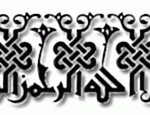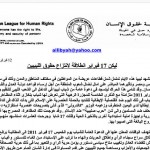How To Spell Qaddafi/Gadhafi/Gaddafi/Qadhafi
You may have noticed reading the news recently, that there is no agreed upon way to spell the name of the current Libyan leader, Muammar Gaddafi. The controversy is well illustrated by a May 1986 letter to Minnesota second graders; Gaddafi signed his name in English “Moammar El-Gadhafi.” The AP reported the event, “Second-Graders Get Letter From Khadafy.”
Librarians are all too familiar with the profusion of guises in which the name of Libyan dictator Qaddafi may be encountered in the Latin alphabet. (The Library of Congress Name Authority File (LCNAF) preferred form of entry — Qaddafi- lists 72 alternate spellings). For the rest of the public out there it’s still mystery that still requires explanation.
In 2009, ABC News listed 112 different ways to spell Gaddafi, which have appeared in various news outlets. The leader’s name was even the topic of a 1981 Saturday Night Live sketch, offering the most creative spelling a one-way ticket to Tripoli.
************************
[YOU CAN’T MAKE THIS UP!!]
Qaddafi’s Arabic etymology of democracy: ديمو كراسي
Qaddafi gave a live interview with Al Jazeera in which he expounded on the meaning of the word “democracy.” According to him, the word “Democracy” is actually an Arabic word that means to sit in one’s chair, because apparently “cracy” is an Arabic plural that sounds like the word for chairs “karasy = كراسي” … and “demo” ديمو in Arabic means “to stay” or “to last a long time.” The word “karasy” (cracy) in Arabic (pl.) usually refers to the thrones or seats of power of ruling dictators, who tend to “sit on the chair” for life. Gaddafi, who has been on the chair himself since 1969, seems to understand that democracies are meant to be dictatorships, and vice-versa. “A system where you have a party, a president and a government is ridiculous,” he said.
He ended the interview with the usual plug for his book, The Green Book (“all this is in The Green Book,” he concludes), a manifesto for government based on the “Third Universal Theory,” which proposes a solution to economic and social problems for humanity. If followed correctly, governments and societies would look much as Libya does.
*******
Who is Muammar al-Gaddafi?
AllGov.com
*******
Fatwas, or religious edicts, Against Gaddafi

Several moral figures, both inside and outside Libya, backed the pro-democracy protesters and the spreading rebellion against his regime.
Libyan authorities arrested Islamic Scholar Al Sadeq Al Gheryani after he spoke to Al Jazeera Arabic program over the phone (Feb-20-11) … during which he issued a holy decree (FATWA, or, Islamic edict), saying that it was “everyone’s duty to get out on the streets and topple Gaddafi.”
Libyan cleric issues fatwa against Gaddafi gift cash
On Tuesday (March 1st), one of Libya’s most prominent religious scholars issued a fatwa against the 500 dinars now being handed out to every Libyan family. In his fatwa, Sheikh Al Sadeq Al Gheryani said the money was tantamount to accepting a bribe from the Kadhafi regime. Such a fatwa is likely to be implemented by his followers, who represent a large section of the Libyan people.
This fatwa was endorsed later by Sheik Ali Mohammed al-Selabi, who is considered to be the most influential religious scholar among Libyans abroad.
Refused an appeal from one of Colonel Gaddafi’s sons, Saadi el-Qaddafi, to issue a fatwa banning demonstrations against his father. “Saadi, Qaddafi’s son, asked me to say a word against the protests; I refused to back him because they were killing innocent people, killing old men and peaceful demonstrators.” The cleric issued a fatwa against Gaddafi instead, saying that “it’s a religious obligation” to fight oppressors and to provide medical and humanitarian help for the protesters.
The Saudi cleric said that he refused to back the Libyan regime because of its “injustices against the Libyan people. That regime is not offering security and peace to the people but it is offering the opposite.”
The Grand Imam of Al-Ahmed Al-Tayeb, head of al-Azhar University in Cairo, calls for the Libyan army to disobey orders Gaddafi.
*******
A copy of the PhD thesis Seif al-Qadhafi, son of Muammar al-Qadhafi, filed in September 2007 at the London School of Economics (whose former chancellor, Tony Giddens, was an advisor to his father). It’s called “The Role Of Civil Society In The Democratisation Of Global Governance Institutions: From ‘Soft Power’ to Collective Decision-Making?” [See more about academics-turned-consultants, Anthony Giddens and Benjamin Barber, according to guardian.co.uk]
**********However********
A careful Wiki-study of Saif al-Gaddafi’s PhD thesis at the London School of Economics yields an astonishing amount of suspicious, non-cited similarities to other texts.
**********
As government security forces were reported to be firing into crowds of civilian protesters on Monday, and with Gaddafi Jr appearing on television to threaten a civil war in which the regime “will fight to the last minute, until the last bullet”, many of his erstwhile associates were questioning their friendships with him… More about this—
 An inquiry into the LSE’s links with Libya and lessons to be learned (October 2011) This Report has been prepared by the Woolf Inquiry, an independent inquiry appointed by the Council of the LSE [London School of Economics] to establish the full facts of the LSE’s links with Libya.
An inquiry into the LSE’s links with Libya and lessons to be learned (October 2011) This Report has been prepared by the Woolf Inquiry, an independent inquiry appointed by the Council of the LSE [London School of Economics] to establish the full facts of the LSE’s links with Libya.
At the time Tony Blair was anxious to secure a rapprochement with the Libyan regime. The call from the Foreign Office to Professor Valpy FitzGerald, the head of Oxford’s Department of International Development, came in the spring of 2002. …
Continue reading Libya: revolution, 17 February, 2011 →









